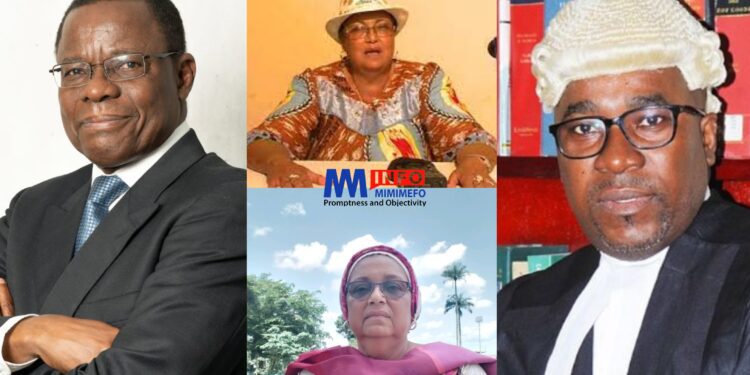The recent appointment of Monique Ouli Ndongo to Cameroon’s Constitutional Council has drawn strong criticism from opposition leaders and civil society figures. They argue that the move undermines the Council’s credibility ahead of the country’s October 2025 presidential election.
A Politically Sensitive Appointment
President Paul Biya appointed Monique Ouli Ndongo on April 8, 2025, for a six-year term, renewable once. Ouli Ndango is a long-time member of the ruling Cameroon People’s Democratic Movement (CPDM) Central Committee and a former senator representing the East Region.
Critics say her close ties to the ruling party raise concerns about the neutrality of the Constitutional Council, which is tasked with overseeing the fairness of elections and resolving constitutional disputes. The Council is constitutionally required to remain independent and apolitical.
Opposition Raises Constitutional Concerns
Maurice Kamto, leader of the opposition Cameroon Renaissance Movement (CRM), was among the first to publicly reject the appointment.
“This is an additional act of defiance against democracy by the outgoing President on the eve of the upcoming presidential election,” Kamto said in a statement. He also accused President Biya of violating Article 7(4) of the Constitution, which governs the independence of electoral oversight bodies.
Civil Society Voices Alarm
Human rights lawyer Nkongho Felix Agbor also condemned the appointment. “Cameroon deserves institutions that reflect the will of the people, not the interest of a political elite,” he stated.
The Constitutional Council plays a central role in Cameroon’s democratic process, including validating election results and ensuring adherence to constitutional principles. According to Law No. 96/06 of January 18, 1996, which revised the Constitution of June 2, 1972, its members must be persons of high moral standing and recognized competence in law, politics, or public administration.
Concerns Ahead of October Elections
As the country moves closer to its presidential election, the appointment has further intensified concerns over transparency and fairness. Critics worry that placing a known party figure in such a strategic position could affect public trust in the electoral process.
The presidency has not yet issued a formal response to the criticisms. However, given the regime’s tendency to ignore concerns, we don’t expect one anytime soon. As public debate grows, the development nonetheless marks a notable moment in Cameroon’s pre-election landscape.



